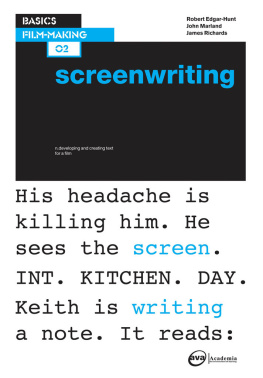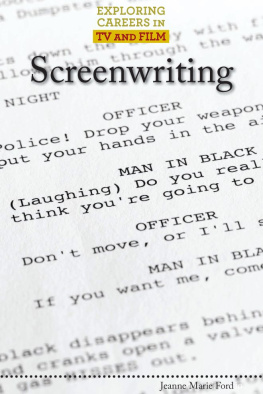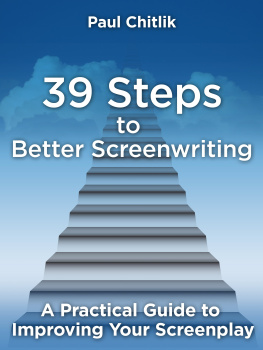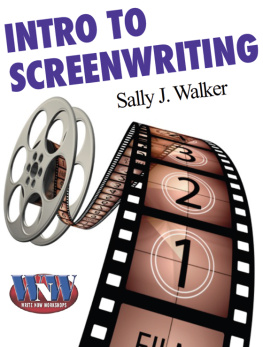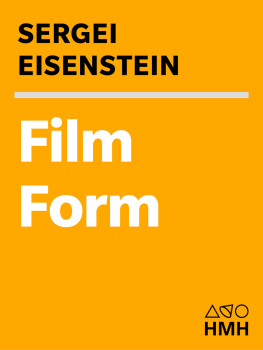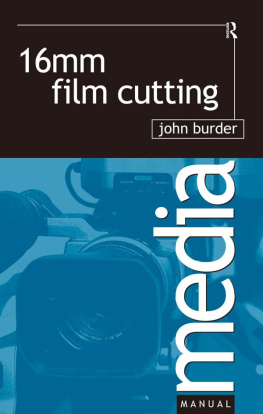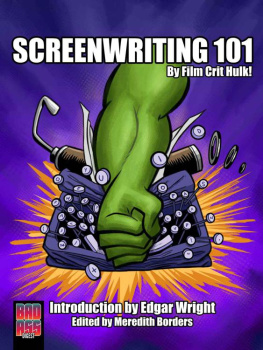
A Chump at Oxford
(dir: Alfred J. Goulding 1940)

Screenwriters who are enrolled on film production courses sometimes complain about theory courses, believing that they are irrelevant to the craft that they wish to learn. This is to be mistaken.
Table of contents






How to get the most out of this book
This book aims to provide you with a detailed introduction to the art and craft of screenwriting. Unlike many texts on screenwriting, this book can be read in two distinct ways. Read through Basics Film-Making: Screenwriting from beginning to end in sequence, and discover the process by which a screenwriter develops their script from initial idea through to producing their final manuscript; or dip into it at leisure as you write and develop your own script, and find guidance on the many stages involved in realising your own ideas.
There are many practical pointers running throughout the book to help you think creatively, get to grips with your script and to guide you through the tricky bits, in the form of exercises, techniques and tips from industry professionals. We have devised these to both help improve your writing skills and to crucially boost your powers of persuasion.

A running glossary explains key terms clearly and precisely
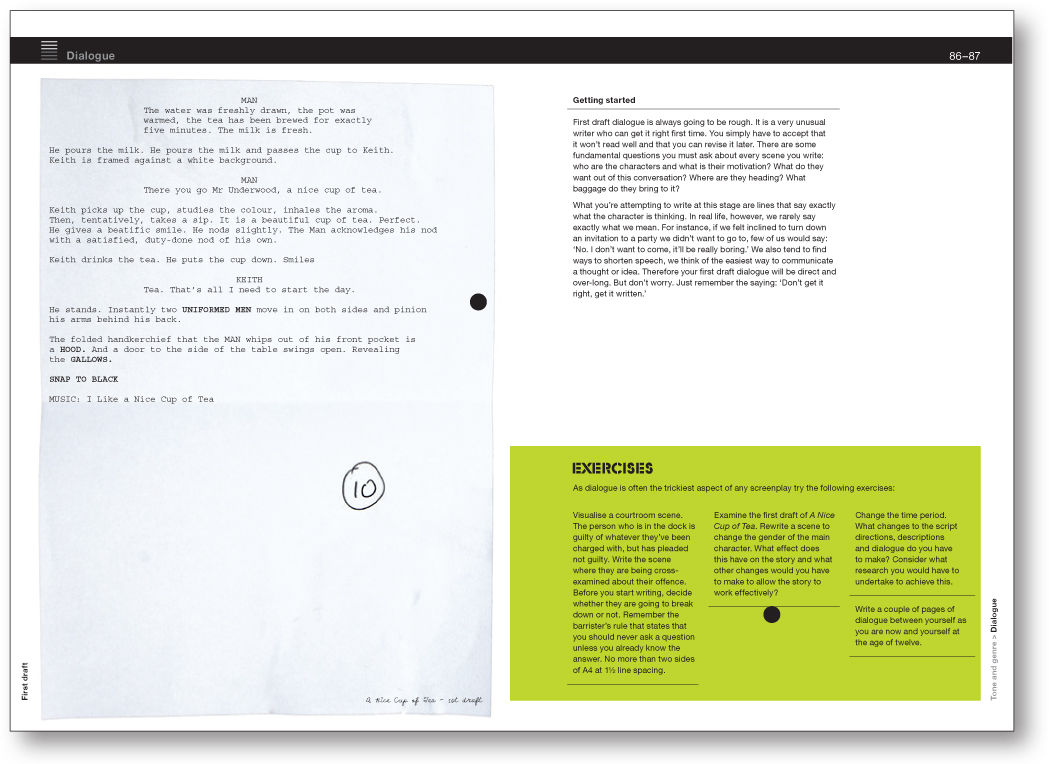
Three drafts of a sample script highlight the different stages of writing a screenplay
A series of practical exercises will help you realise your concept and develop your script
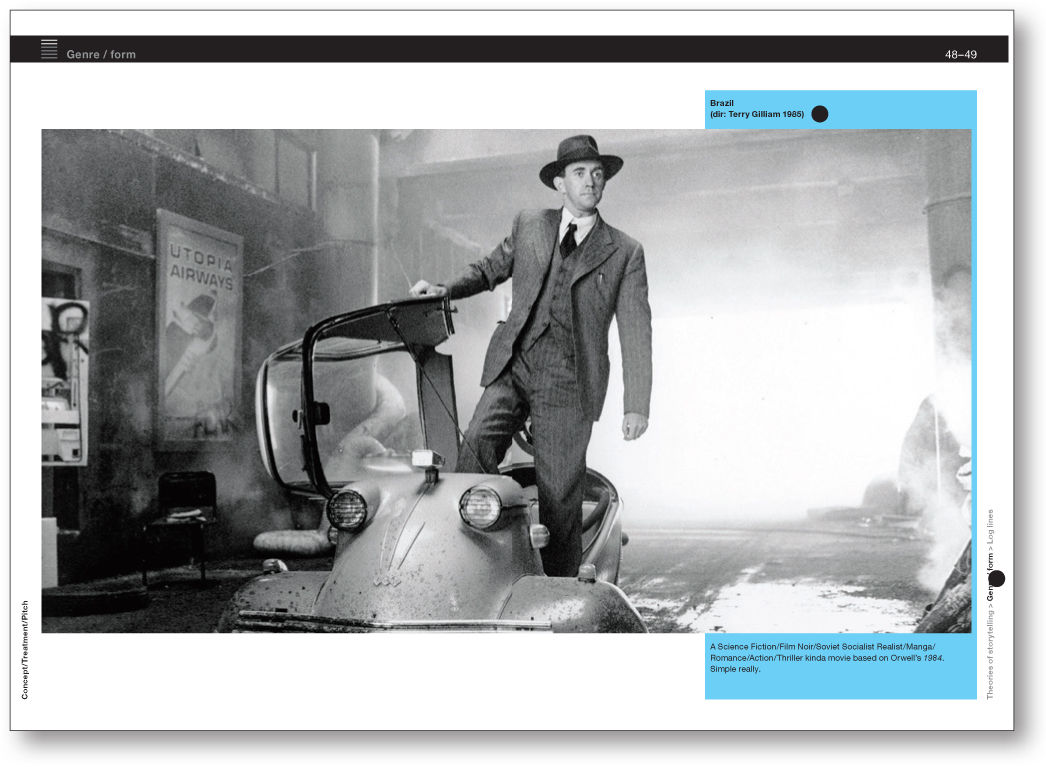
Captions illustrate stills from scripts turned into successful films
Chapter navigation helps you find your way around the book easily
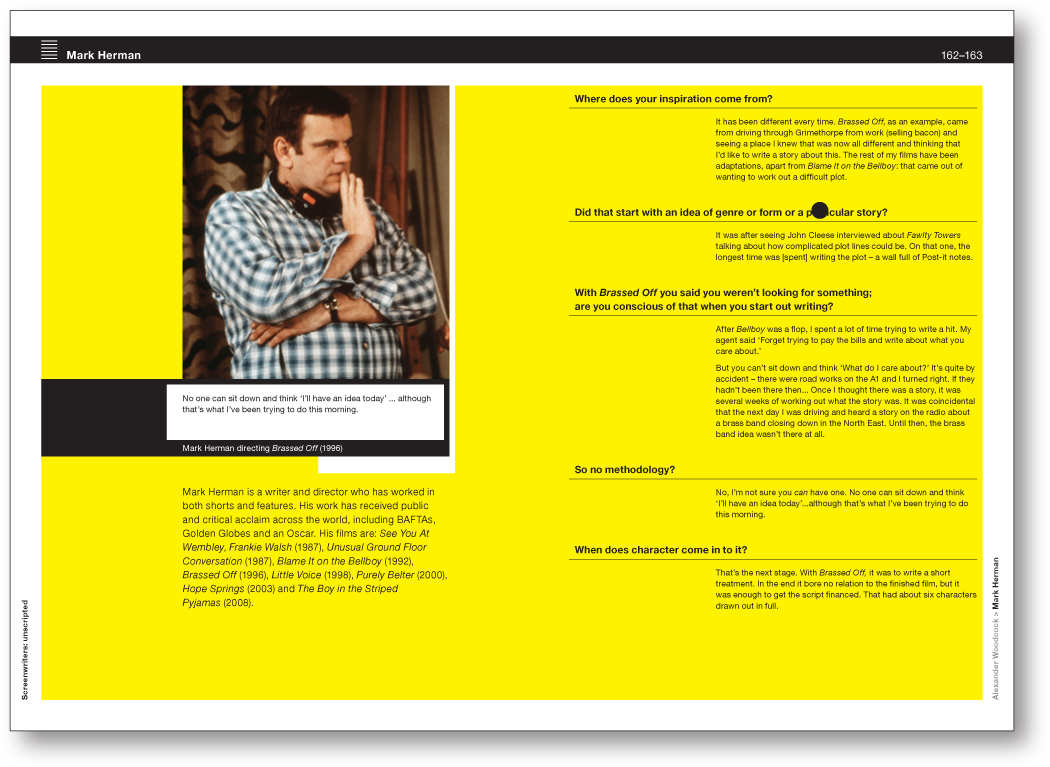
Revealing interviews with both established and emergent screenwriters provide an insiders account
Introduction
People rarely like being told they are beginners, but we all have to start somewhere. As with any book that aims to guide you through the process, there is always the temptation to ignore the early sections writers are often the worst offenders.
Problems with screenplays are often the result of writers ignoring first principles. Be aware of the process and make sure that you know the rules before you break them. Recognising your own practice is crucial; otherwise you may find yourself building up a catalogue of errors and glitches that will cause problems later.
As you develop and learn, self criticism will become automatic; you will know what not to write, what mistakes to avoid.
The screenplay is at the heart of film-making. Without it a film cannot be made. It tells actors what to say, it tells a set designer what to build, it tells a sound recordist what to record and it provides the director with a guide to what shots they will need to use.
A good screenplay is the master plan for a project that will give many people a lot of pleasure. To design one requires considerable thought and dedication.
This book cannot guarantee you success. It cannot list shortcuts or magic formulas, because there are none. It cannot write your script for you nor comment on it once it is finished. What it can do, however, is explain some of the rules and conventions of screenwriting, take you step by step through the process and provide you with the confidence and knowledge to write and crucially rewrite your own screenplay.
Why short film?
Nearly all screenwriters aspire to write a feature film. This is an understandable and ultimately attainable ambition.
The British film industry produces about a hundred films a year. Most film companies receive at least a thousand scripts a year; some many more. Even a low-budget feature film can cost over a million pounds and making a feature is a major operation that normally involves hundreds of people.
For those wanting to get started in film-making, the short film has some key advantages over the feature. It takes far less time to write, can be more experimental and is much easier to make. The power of digital technology means you can even shoot and edit it yourself.
The Internet allows you the opportunity to show your short film to a worldwide audience. There are also a growing number of short film festivals held around the world.
Studio One, York St. John University, c.1963
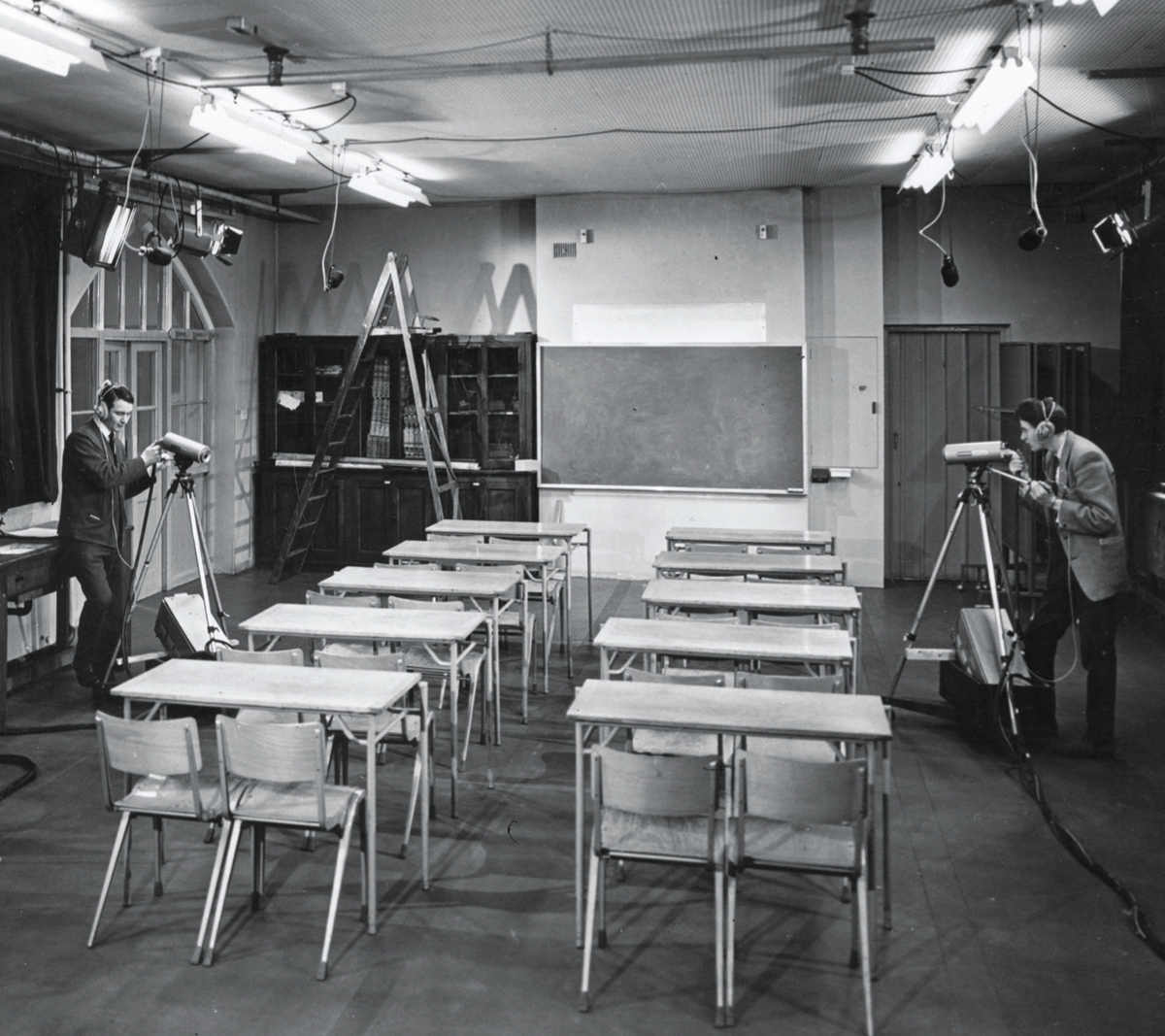
Without a script, you would have an empty room and a couple of geezers with all the technology in the world but nothing to film.
Short films can also pack a tremendous punch. We will often remember a good short film more vividly than a feature. They can achieve an intensity that is hard to sustain in a feature film.
Short films are also good for getting writers and directors noticed. Film-makers such as David Lynch, Mark Herman, Shane Meadows and David Yates first made their mark with short films. Many others cut their teeth on adverts which are shorts after all directors such as Ridley and Tony Scott.
The short film writer as a student
When asked whether she felt that university writing courses stifled creative talents, fiction writer Flannery OConnor replied: Not enough of them. OConnors humorous comment highlights the importance of education when applied to the dramatic writer education both formal and informal.
A screenplay is one of the most highly structured forms of writing any writer can undertake. To start writing without knowing how film structure works is like trying to build a house without architectural blueprints. You may get quite a long way by simply piling bricks on top of each other, but you are very unlikely to complete the house. At some point it will simply collapse under its own weight! So will an unplanned script.
Next page
